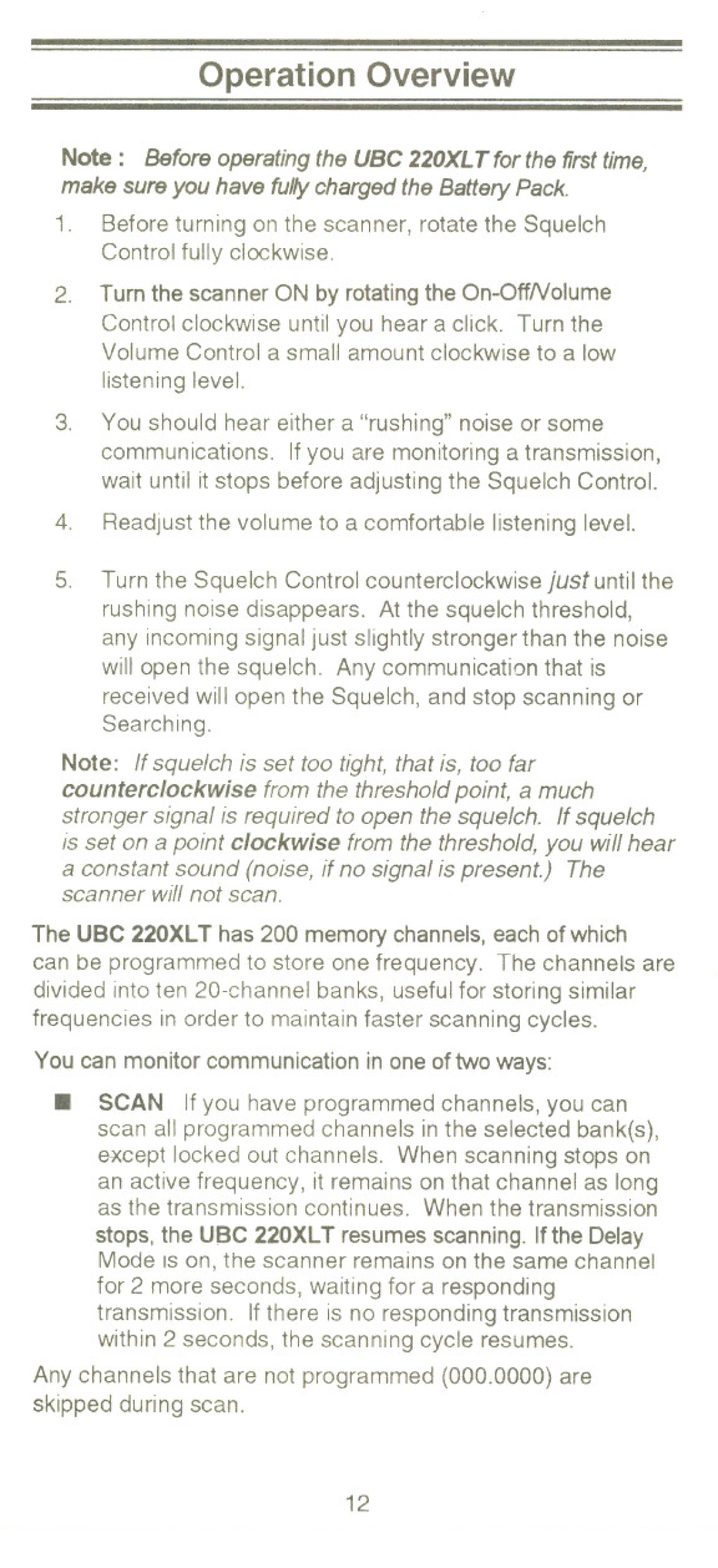
Operation Overview
Note: Before operating the USC 220XL T for the first time, make sure you have fully charged the Battery Pack.
1.Before turning on the scanner, rotate the Squelch Control fully clockwise.
2.Turn the scanner ON by rotating the
Control clockwise until you hear a click. Turn the Volume Control a small amount clockwise to a Iow
listening level.
3.You should hear either a "rushing" noise or some
communications. If you are monitoring a transmission, wait until it stops before adjusting the Squelch Control.
4.Readjust the volume to a comfortable listening level.
5.Turn the Squelch Control counterclockwise just until the rushing noise disappears. At the squelch threshold, any incoming signal just slightly stronger than the noise will open the squelch. Any communication that is received will open the Squelch, and stop scanning or Searching.
Note: If squelch is set too tight, that is, too far
counterclockwise from the threshold point, a much stronger signal is required to open the squelch. If squelch is set on a point clockwise from the threshold, you will hear
a constant sound (noise, if no signal is present.) The scanner will not scan.
The UBC 220XL T has 200 memory channels, each of which
can be programmed to store one frequency. The channels are divided into ten
You can monitor communication in one of two ways:
. SCAN If you have programmed channels, you can scan all programmed channels in the selected bank(s), except locked out channels. When scanning stops on
an active frequency, it remains on that channel as long as the transmission continues. When the transmission
stops, the UBC 220XL T resumes scanning. If the Delay Mode IS on, the scanner remains on the same channel
for 2 more seconds, waiting for a responding transmission. If there is no responding transmission within 2 seconds, the scanning cycle resumes.
Any channels that are not programmed (000.0000) are skipped during scan.
12
